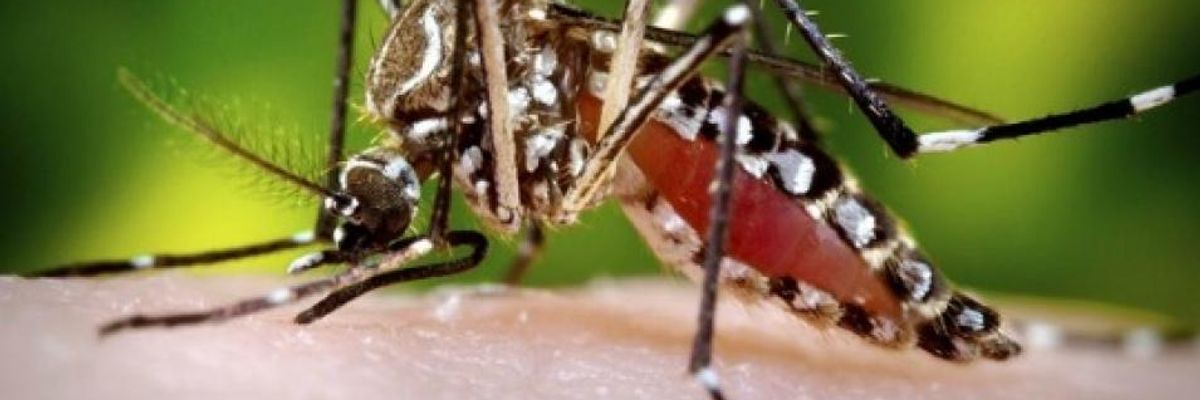A number of scientists are saying the spread of the Zika virus outbreak, which is now gripping Brazil and other parts of the Americas, may have been helped by climate change--and may offer a sign of the kind of public health impacts to come.
The World Health Organization declared a global public health emergency over the possible connection between Zika and microcephaly, and warned last month that the virus is "spreading explosively." As many as 4 million people in the region could be infected by the end of this year, the agency warned.
While a definitive link hasn't been made between the virus, transmitted primarily by the Aedes aegypti mosquito, and climate change, changes in temperatures and precipitation have impacts on the mosquitoes' habitat.
From the Guardian:
"We know that warmer and wetter conditions facilitate the transmission of mosquito-borne diseases so it's plausible that climate conditions have added the spread of Zika," said Dr Diarmid Campbell-Lendrum, a lead scientist on climate change at WHO.
"Infectious agents in water will proliferate with more flooding. It's clear that we need to strengthen our surveillance and response to a range of diseases. Globalization, the movement of people, is an important factor too. In a world where we are disrupting the climate system we'll have to pay the price for that."
Inside Climate News reports that "scientists and public health officials see the outbreak as an omen in a world steadily warming under the effects of climate change." It continues:
"[Zika] is the virus of the moment but can be taken as an indicator of a future where changes in temperature provide a more hospitable environment for viruses to replicate and be transmitted," said Colin Parrish, a professor of virology at Cornell University.
Nick Watts, head of a commission on health and climate change for the The Lancet, told reporters last week, "Unless mitigated, climate change is likely to bring the spread of new emergent infectious diseases like Zika virus."
The outbreak also shows another way in which climate change hits women harder, Amelia Urry writes at Grist, and notes that
While the current Zika surge in the Americas can't be tied explicitly to climate change, the broader patterns show these kinds of outbreaks in more and unexpected places. Does that sound familiar? It might remind you of how we're also going to experience more drought, more flooding, more people fleeing their homes, and more people fighting. These aren't climate change acting alone, but they are side effects -- the reason climate change is known as a "threat multiplier." If you have a problem on the ground, climate change is almost certain to make it worse.
And this all points to the need for global leaders to take seriously the public health risks a warming planet has in store, says Fiona Armstrong, executive director of the Australia-based Climate and Health Alliance.
She warns, "Political leaders and health authorities are underestimating the breadth and complexity associated with the risks to human health that come along with a warmer planet."
